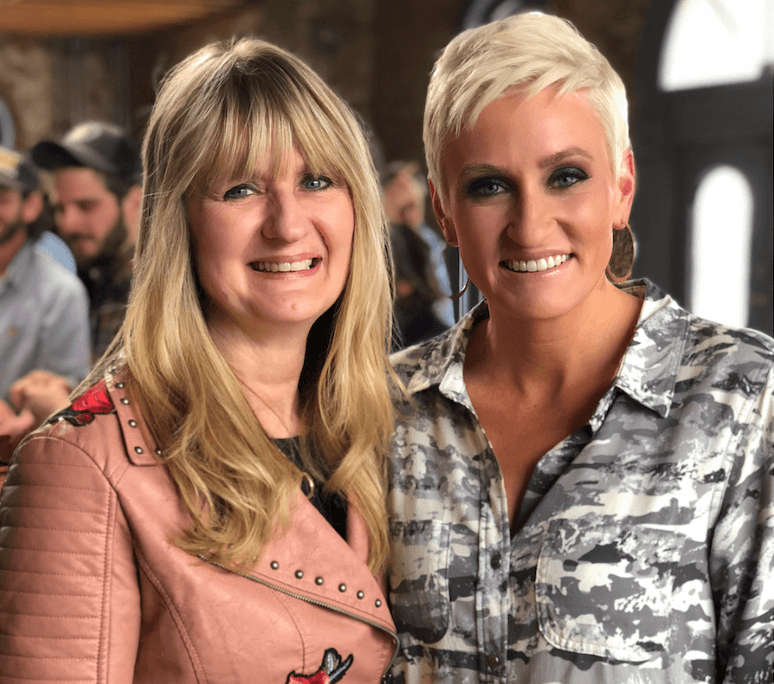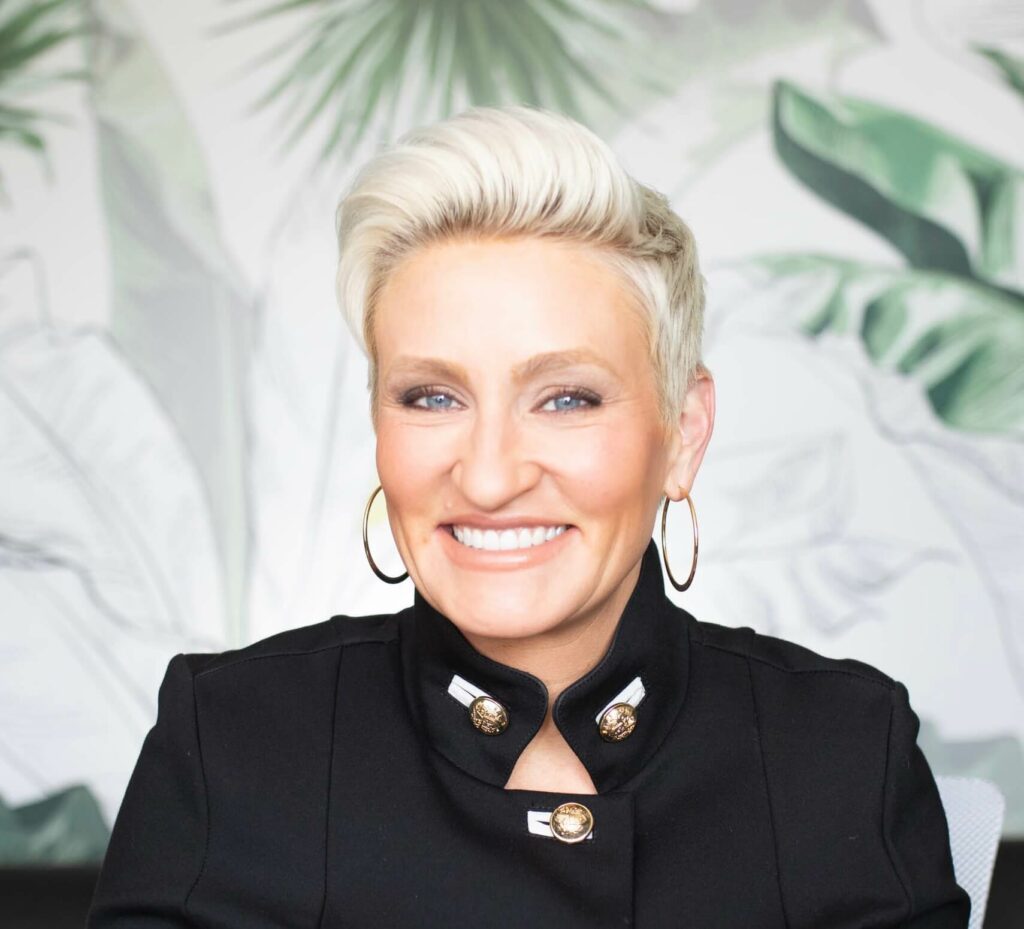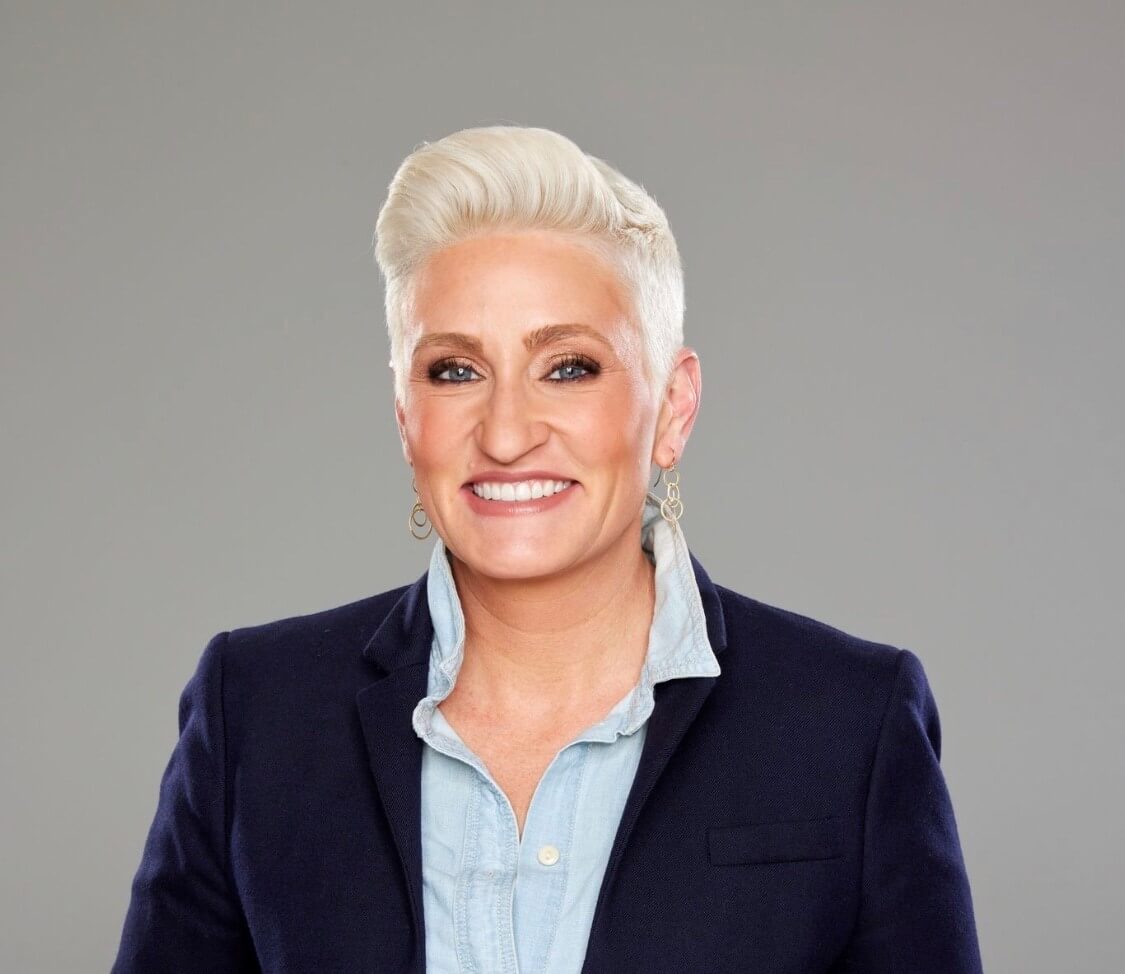I’ve had the honor of encountering (and learning from) some particularly bad-ass women throughout my career. But I have to say, for season three of Small Business Revolution, when we enlisted six female industry experts to help us make over small businesses in Alton, Illinois, we might have found some of the most bad-ass women in the country. Period.
Case in point: Juanita Copeland, vice president, chief operating officer, general manager, and all-around head honcho at Sound Emporium Studios in Nashville. After climbing the corporate ladder in the record industry, she pursued her passion for leading recording studios, and has since worked with everyone from Robert Plant to Pharrell to Willie Nelson.
Q: You lead an incredible studio and have said that success in your industry is dependent on customer service and providing the right environment to make artists comfortable. How do you nurture that sort of environment?
A: I think it starts with a great staff. I take great care in hiring staff engineers. My staff is the backbone of this studio. It is important to have staff that are not only competent and the best at what they do, but personable and able to handle high-stress situations properly. We deal with some very colorful personalities in this business and you HAVE to exhibit grace under pressure – ALWAYS. I treat my staff with respect and try to keep morale high. We kayak, roller skate, bowl and hang out together a lot outside of work. We are truly a “family” here and that extends from staff to clients (studio family). If staff are happy, it makes for a very healthy work environment and that translates into a positive recording experience for the artists, producers, musicians and outside engineers who make up our “studio family.”
We go out of our way to provide a comfortable “vibey” environment that “inspires” the artists and makes them feel creative. We do that in many ways, from the smallest of details of our décor to providing their favorite beverages or snacks. We bake fresh biscuits every morning and put a nice spread of fresh fruit and locally brewed coffee out for the morning sessions. In the afternoon we put out chips/salsa or pita chips and hummus or other kinds of chips/pretzels, etc. and some sort of cookie or sweet (and sometimes veggie trays, depending on the artist). We want them to truly feel like this is their creative “home.” They may be a “client” when they call to book the room, but after they walk through our doors, they are “studio family.” I also try to interact with them directly rather that via email when they are first booking so I get a feel for their session and what they need. I also try to match them with the best engineer or assistant engineer for their needs. I try to follow-up with everyone after their session to thank them for their business. I pay attention to what many consider “small things” – like making sure we have feminine hygiene products in the women’s bathroom. Not important to men – but to women – we ALL know how important that can be. I’ve had several male musicians or producers mention to me how incredible that is, even though they know it doesn’t “benefit” them. They are impressed by the lengths we go to make people comfortable. That translates into happy studio family and word of mouth that brings us new clients. It’s a total win-win. And also, the only way I know how to do business.
Q: The music industry (like many others) is very male-dominated. How have you navigated that as a woman who is a real industry pioneer?
A: I had a very strong, positive, female role model/mentor that I met my very first day at Mercury Records. She was much older than me, but so very elegant and powerful. Her name was Joyce Triplett and she taught me to never compromise my integrity and also that self-respect is very important in our business. She set the bar very high for acceptable behavior and I wanted to be just like her. She was so very well respected. But she worked really hard and she told me that is just what you have to do. I also learned very quickly that I would have to work twice as hard as the men around me to be respected. It meant putting up with a lot of inappropriate comments and things that would not fly in today’s world. It was so accepted back then. And the bad behavior started at the top of the food chain and was seen as “acceptable behavior” so the other male staff members felt it was OK. Thank god the times have changed. I also learned back then that I would work twice as hard as the men, but make a lot less money. Things have changed quite a bit since I started out as a receptionist at Mercury Records making $7.50 an hour, but I have had to work very hard to be where I am today. I am very proud that all of my success has come as a result of my hard work. Not as a result of any shortcuts I could have taken that would have compromised my integrity or who I am as a person. I feel that is so very important for young women to hear. You may have to work longer and harder but you WILL get there if you stay true to you.
Q: You’ve spoken out about sexual harassment in your personal and professional lives. How do you create a culture of empowerment for women?
A: Teach them that kindness is not weakness. Too many times women are afraid to be “too strong” because that is not “how women should behave.” You can be strong and kind and professional. Teach them to never compromise their integrity for anyone or anything. Teach them confidence and how to deal with someone who is putting them in an awkward position. I also do NOT tolerate any sort of inappropriate behavior or allow any of our clients/studio family to treat my female employees with anything but respect. I also give them responsibility and trust them to make decisions. That builds confidence (and character)!
Q: I speak often on the topic of how important it is to take “brand purpose” and turn it into actual brand action. How important do you think it is that companies move beyond basic philanthropy and actually get involved in advocating for and making the lives of their customers better?
A: For us it is a bit different than most businesses because our “customers” are making ART!! By giving them a comfortable place to record at a rate they can afford, we can help EVERYONE, regardless of budget or fame, record a world-class record that can change their lives. It sounds grandiose, but it is the truth. We can also give someone the experience of a lifetime and a memory that will stay with them forever. I have also donated studio time to local bands who cannot afford to record in a world-class studio. This is truly “paying it forward” for the bands to be able to create a professionally recorded CD that they can then sell to earn a living. We also donate studio time to “Girls Write Nashville,” a non-profit group that holds a songwriting camp every year for girls in at-risk situations and homes. They spend the camp writing with a Nashville songwriter mentor and then we bring them in to record what they’ve written. This can change the life of an at-risk young lady and give her the confidence to rise above situations that can be less than ideal and help her develop self-esteem and self-worth. It’s very important to me to give back to them.
Q: I think you are a rock star in the music business already. But if you were a regular rock star, what would be your stage (or band) name?
A: Oh my. I’m not a fan of being in the forefront. But if I were a “rock star,” I would call myself or my band Elan. It has several meanings but one is “ardor inspired by passion or enthusiasm.” In French, it means “uniquely different.”
Q: I have to ask: Someone mentioned that you have an animal rescue business on the side, for potbelly pigs. Please elaborate.
Q: I have been an animal rights advocate since I was 8. That’s when I took on our city council and gathered 5,000 signatures to get a new animal shelter built after witnessing horrible conditions at the “dog pound.” I have never stopped working for and rescuing animals. Back in 1999, I rescued my first pot belly pig and I’ve been involved in pot belly pig rescue for almost 20 years now. I have nine rescued pigs that share my four-acre farm just outside of Nashville. I also have four rescued rabbits, four rescued barn kitties and three rescued dogs. It keeps me very busy. But it is my second passion after music!



